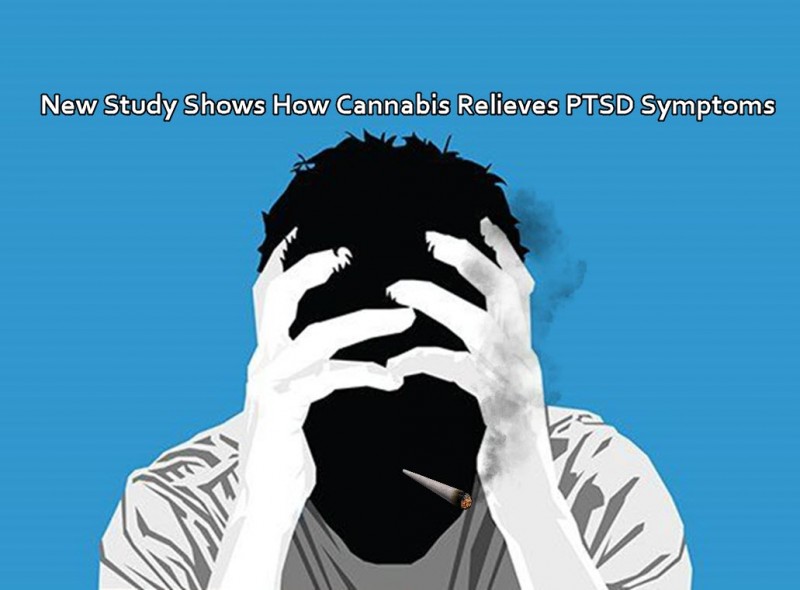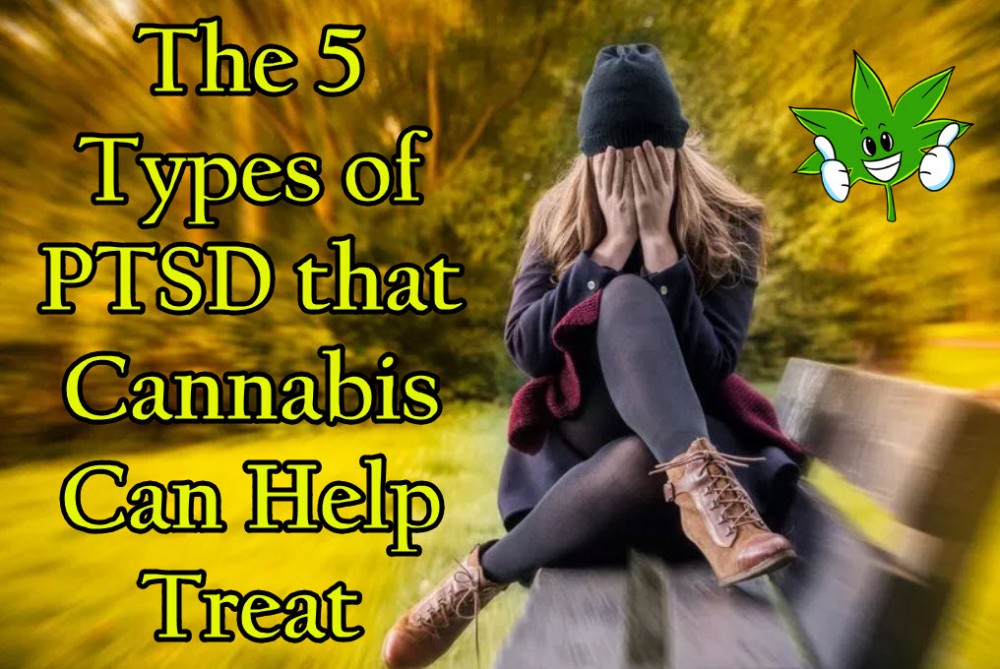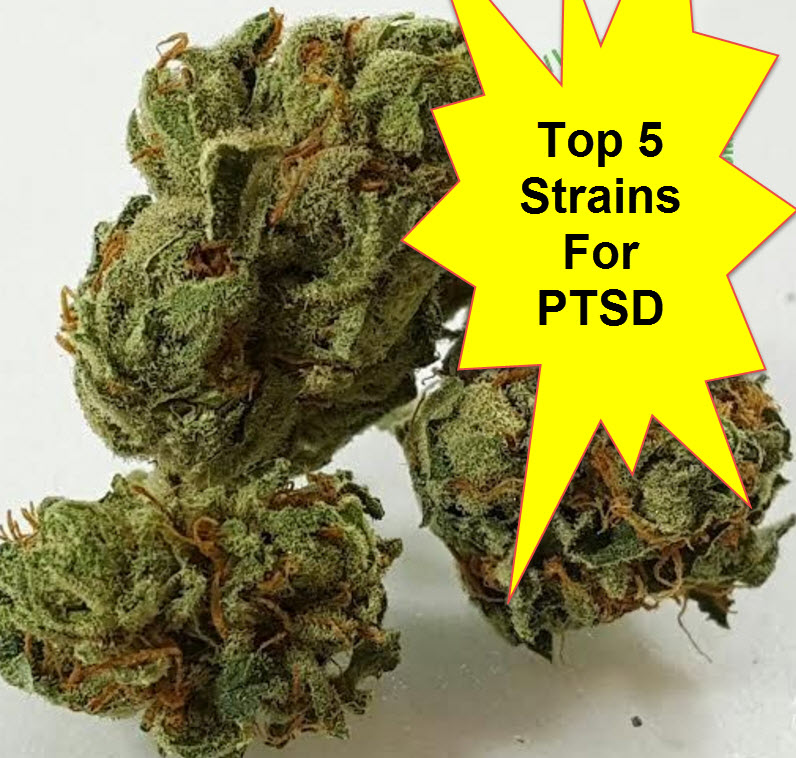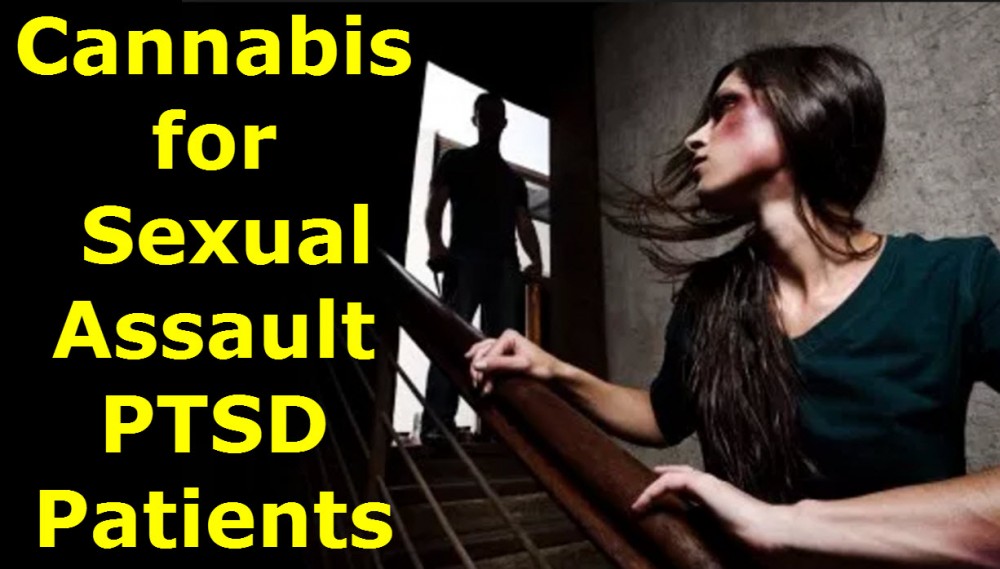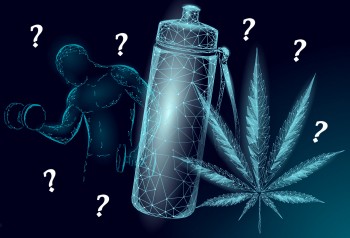New Study Shows How Cannabis Relieves PTSD Symptoms
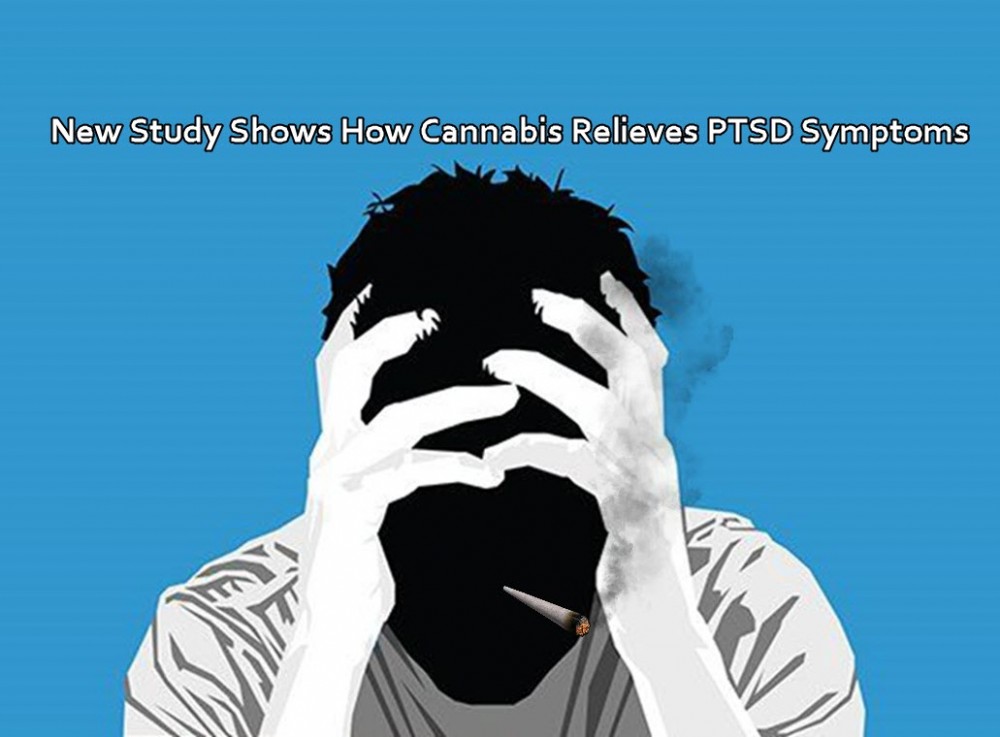
Post-Traumatic Stress Disorder is a condition that prompts the brain to essentially “relive” a traumatic event and condition behavior around the trauma. In a way, it’s a permanent state of “fight or flight” and it can have devastating effects on those afflicted with this condition.
Post-Traumatic Stress Disorder or PTSD is a difficult concept to wrap your head around if you don’t suffer from the condition. I like the way George Carlin explained it with his “Shell Shocked joke” but in essence it’s a continual loop of the worst moment in your life, invading absolutely every aspect of your life.
Without the ability to sleep or relax and constantly being in a state of stress – things like depression, fatigue can lead to self-medication or even suicide.
Medical patients have claimed for a long time that cannabis helps with PTSD and there are plenty of studies on the subject matter. A recent study adds to the literature and analyzed the “Short and long term effects of cannabis on Symptoms of Post-Traumatic Stress Disorder” where they found interesting .
Let’s talk about the method for a second…
As with many studies of this kind, the researchers rely on “self-reporting”. I’m personally not a big fan of this means of conducting research [unless it’s for consumer data], but this is a standard within modern research practices.
If this is a necessary evil, the next important factor would be “how you obtain the data”. Within the traditional survey format – you limit the users to a specific time, under abstract conditions and only find superficial answers within the datasets.
In this particular case – the researchers accessed data from an app called Strainprint which is a medical cannabis app that allows patients to track their symptoms. It also allows patients to indicate which strain they are using, the frequency, the severity of the symptoms prior to consuming and after consuming, and a whole myriad of other data points.
As you can see – this interactive method of tracking data seems to be far superior than “surveys” despite it being a highly immersive version of a survey – albeit in real time.
This sample collectively used the app 11,797 times over 31 months to track PTSD-related symptoms (intrusive thoughts, flashbacks, irritability, and/or anxiety) immediately before and after inhaling cannabis. Latent change score models were used to examine changes in symptom severity and predictors of these changes (gender, dose, cannabis constituents, time). Multilevel models were used to explore long-term consequences of repeatedly using cannabis to manage these symptoms. - Source
What were the findings?
As expected – cannabis reduced all symptoms by more than 50% immediately after use. Higher doses also provided more significant relief however – the symptoms would eventually return and in some cases motivated people to consume more frequently.
This also makes sense considering that PTSD is a psychological condition. Simply smoking weed won’t make it go away. You have to face it – and what cannabis does for the PTSD sufferer is that it gives them a window to take a hard and long look at the issue that ails them.
Limitations within the study
This study – while interesting has a lot of limitations specifically the fact that there was no placebo group and that those with PTSD were self-diagnosed. This means that at best the data set should be considered anecdotal.
Nonetheless – it does show us definitively that from the perspective of the medical patient the symptoms do decrease. This just corroborates the findings of previous studies on the same subject meaning that cannabis is a suitable medicine for the condition.
Why didn’t cannabis ‘heal’ the users?
As mentioned – PTSD is a psychological issue that stems from trauma. When a traumatic event occurs, your body immediately begins to release certain chemicals to make you respond to the situation. Your heart beats faster in your chest, the blood runs to your extremities and your vision narrows. You can’t think straight – some inner instinct takes over. The event occurs, you suffer as a consequence and then when it’s over – you can’t seem to shake it from your mind.
Within your head, the scene just plays over and over again. Every single time, the same chemistry occurs in your body, your muscles tense the exact same way – the mirror neurons in your brain fire and you re-live the experience again.
Cannabis interrupts this process however, not entirely. Cannabis only has the ability to allow you to “operate outside” of this automated program – but if you don’t work on it, you won’t shift your perspective and resolve the trauma.
Most people with PTSD are “running away” from the event – and with good reason. However, this behavior only prolongs the duration of the trauma. Only by facing it and dealing with it – doing the “work” as they say – can you resolve the trauma and let go of it.
PTSD is a peg in your mind that keeps you in a constant state of fight or flight. Cannabis loosens that peg, but it’s up to you whether you want to remove the disruption or not. It’s not easy and it’s definitely not pretty – but unless you do that, no amount of cannabis would be able to get rid of your PTSD.
If your mind was a broken leg - cannabis is the crutch that allows you to keep on going while you are healing.
MEDICAL MARIJUANA FOR PTSD, READ MORE...
MARIJUANA FOR DIFFERENT TYPES OF PTSD, READ ABOUT IT!
OR..
CANNABIS STRAINS TO TRY FOR PTSD PATIENTS, READ THIS!

